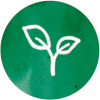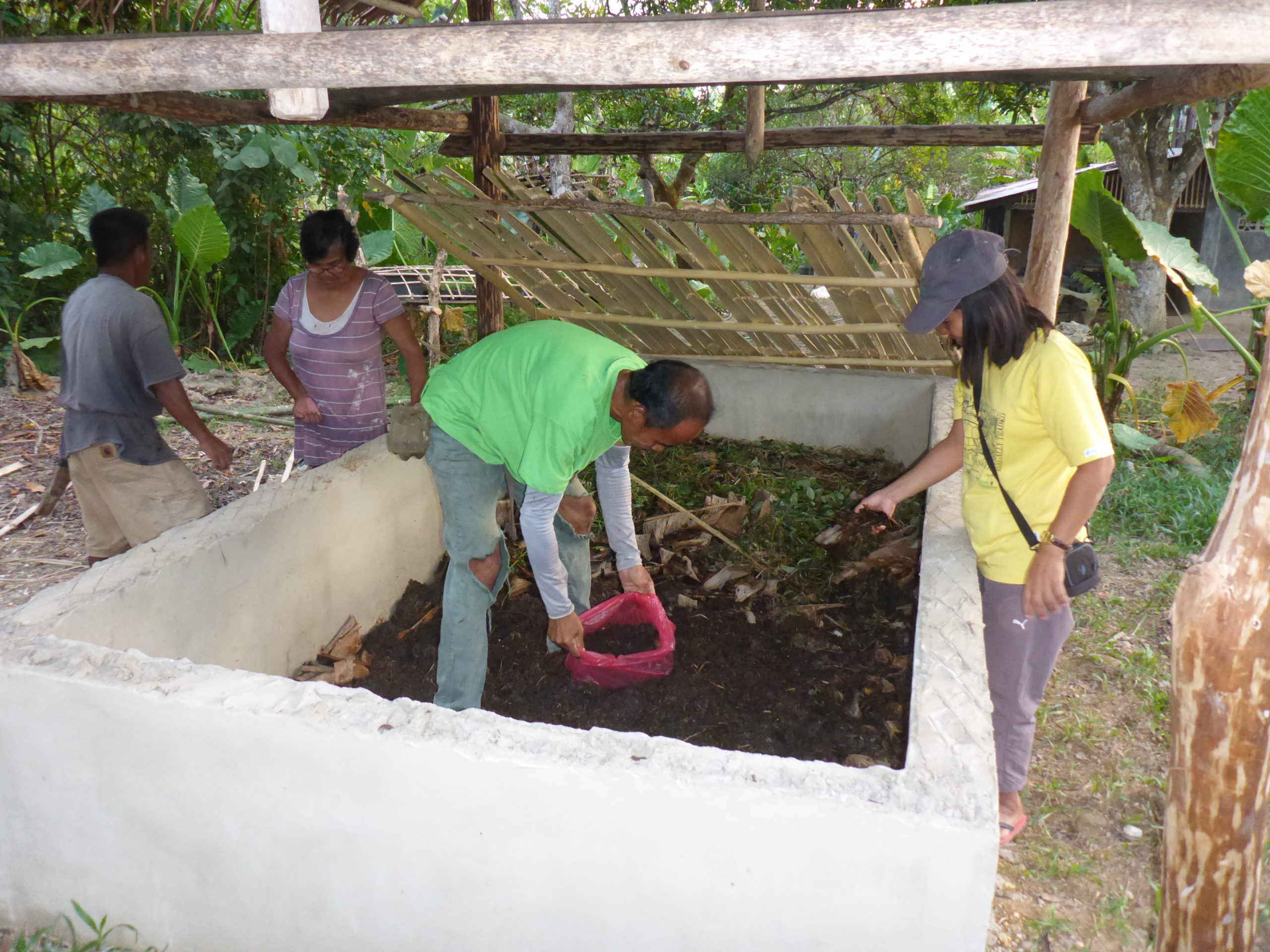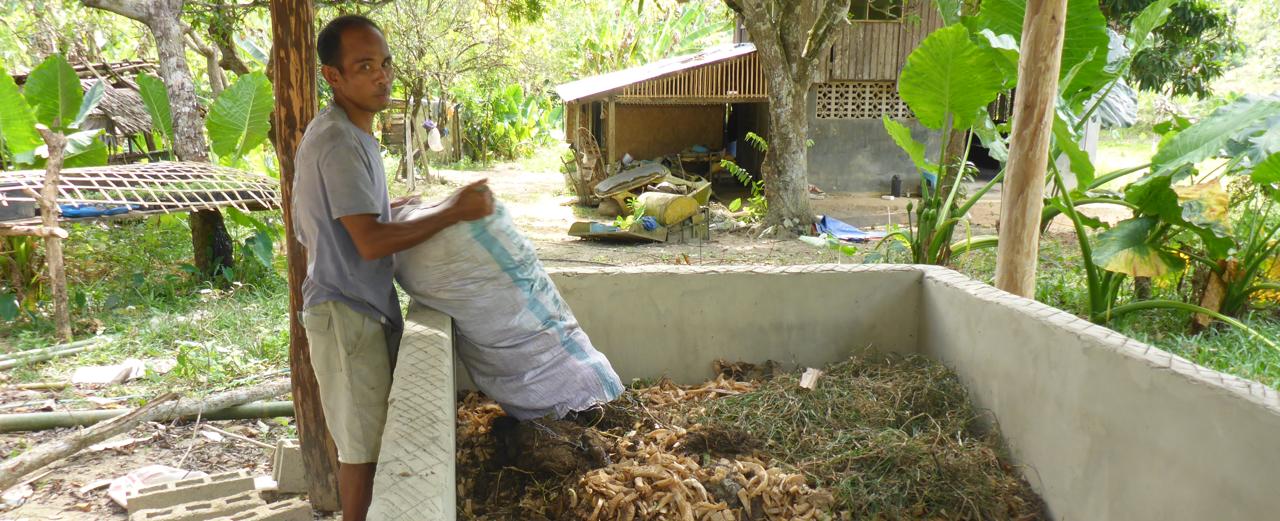 There is more to worms than you might think
There is more to worms than you might think
Sustainable agriculture in the Philippines
Darwin is a farmer in the village of Dumarao. He learned from his parents that almost everything that man needs to live is derived from nature. Resources seemed to be infinitely available. But as Darwin grew up, he observed how deforestation around the village led to flooding, erosion, water shortages and hunger. The forests were shrinking more and more. Together with other villagers, Darwin founded an initiative to save the local forest that provides drinking water for the village. Today, Dumarao has an official water conservation area. To protect the water from pesticides and chemical fertilisers, Darwin went one step further: Together with other farmers, he began to learn and apply organic farming techniques. He quickly recognized the wonderful things worms can do and how they transform organic waste into fertiliser in a very short time. This ecological fertiliser is both more effective and cheaper than chemical fertilisers and also protects drinking water.
Necessity
Increasing income and improving agricultural yields for farming families in Dumarao (Philippines).
Activity
Local NGOs distribute compost worms to farming families and instruct them on how to keep and use them to produce organic fertiliser.
Countable effort
Number of compost worms and farming families who have switched to sustainable agriculture.
Result
The income of farming families increases by at least 40 per cent compared to before the start of the project. Pesticide inputs into the soil and drinking water are reduced.
Systemic effect
The living conditions of the village population are improved when it comes to health, income and water supply.
Background
Dumarao is one of 31 villages in the Philippine county of Roxas (Palawan province). The village has about 3,000 inhabitants (Anon, 2015). With an average family income of 7,572 Philippine pesos (around 137 euros) per month, the inhabitants live below the poverty line and are thus among the poorest 21 per cent in the Philippines (NSO, 2015). Around 40 per cent of the population in Dumarao therefore depend directly on the use of forest products. The main source of income is agriculture, especially the cultivation of rice and vegetables. Most of the small farming families live on the edge of the protected drinking water catchment area in Dumarao. Chemical fertilisers and pesticides are so expensive that the families can hardly make a profit from farming. Out of necessity, they try to expand their cultivated land, including by working the banks of the river. This leads to erosion and flooding, which ultimately destroys large parts of the rice and vegetable harvests. Smallholder families lose important income and are forced to get into debt. At the same time, drinking water is contaminated by chemical fertilisers and pesticides.
The good deed
Your donation today will provide the smallholding families with a handful of compost worms for the production of organic fertiliser. The families no longer have to buy chemical fertilisers because they learn to produce organic fertiliser themselves. For this purpose, each farming family builds its own worm composting house. This consists of a covered shelter with two large concrete composting chambers in which the worms are cultivated. At the same time, the families are taught about organic farming. By doing without chemical fertilisers and pesticides, they can also reduce their expenses. With today's donation, the farming families are given the opportunity to increase their yields, produce healthy food and protect their drinking water in the long term.

AboutPhilippines
Manila
108,116,620
US$ 9,540
Placed 106th out of 189
The Philippines is the fifth largest island nation in the world. The country comprises a total of 7,614 islands.
About the organization and further information
Carpus Association
Website

Further information and source
- Acosta, D., Schoppe, S., 2013. Yet another reason to conserve the Palawan Forest Turtle Siebenrockiella leytensis. Poster presentation, 22nd Annual Philippine Biodiversity Symposium, Central Mindanao University, Musuan, Bukidnon, Mindanao.
- Mittermeier, R. A. et al., 1997. Megadiversity: Earth's Biologically Wealthiest Nations, CEMEX/Agrupación Sierra Madre, Mexico City.
- Myers, N. et al., 2000. Biodiversity hotspots for conservation priorities, Nature, New York.
- Palawan Council for Sustainable Development, 2015. ECAN Resource Management Plan of the Municipality of Roxas, Puerto Princesa.
- Poverty and Human Development Statistics Division, 2015. Full Year Official Poverty Statistics of the Philippines, Philippine Statistics Authority (PSA), Quezon City.
- Schoppe, S., 2014. It takes a village. The Tortoise 1(3), 46-49.
- Sinha, C., Heaney, L. R., 2006. Philippine Biodiversity: Principles and Practice, Haribon Foundation, Quezon City.




